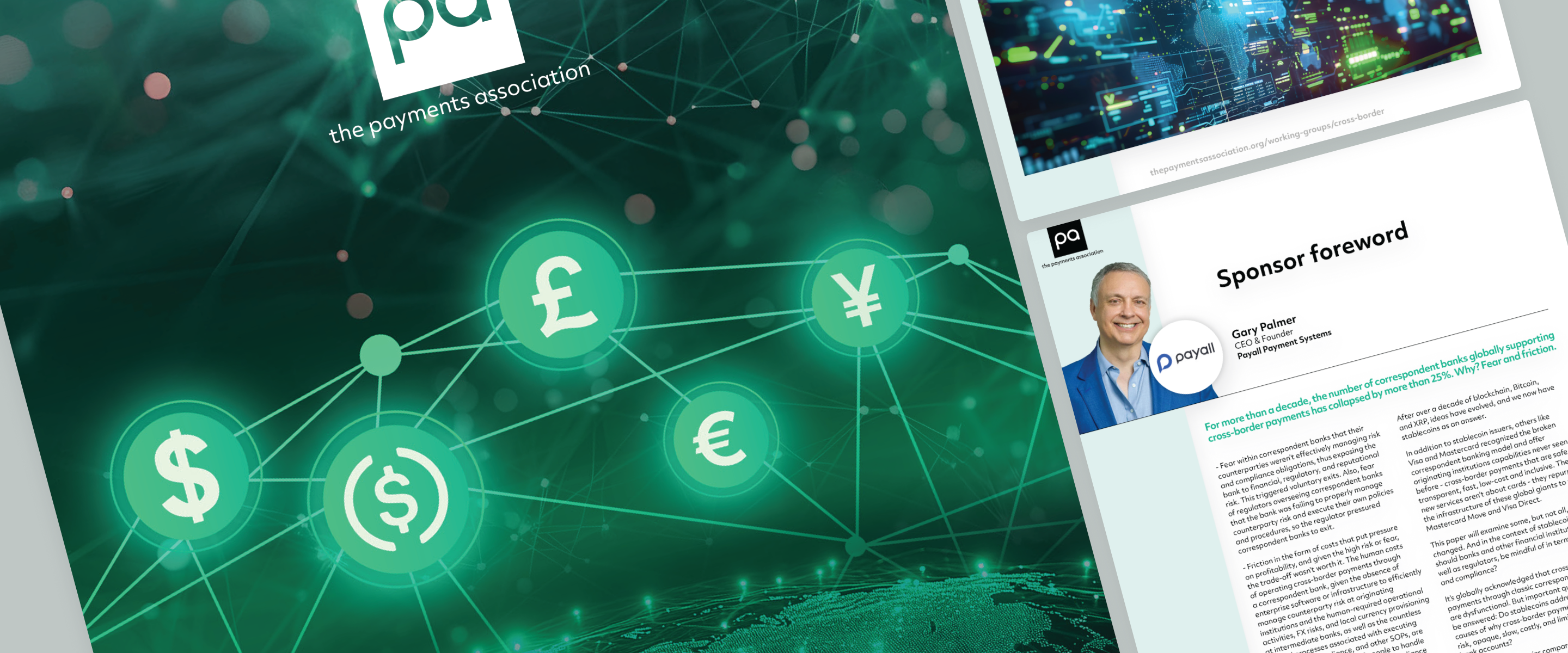At the December NextGen Payments Forum in Austin, Texas, an eye-opening conversation took place between Jessica J. Washington, Assistant Vice President and Director of Payments Research and Outreach at the Federal Reserve Bank of Atlanta, and Gary Palmer, President, CEO & Chairman at Payall Payment Systems.
The session, "New Charters: a Path to Innovation and Safety for Banks, Fintechs and Customers", tackled one of the most pressing questions in financial services today: how can we evolve financial regulation and infrastructure to unlock innovation while ensuring safety, trust and compliance?
Why Listen to the Conversation?
1. Today’s Payments System Wasn’t Built for Fintechs
Jessica opened the discussion by noting that while Fintechs are transforming the user experience and pushing boundaries, the infrastructure supporting financial services is still rooted in traditional banking models. That mismatch introduces risk, complexity, and blind spots—not only for consumers, but also for regulators and established financial institutions.
“We have to think about how to make the system work for everyone, including new entrants who operate very differently than traditional banks.” – Jessica J. Washington
2. It’s All About Enabling Safer Collaborations
Gary emphasized that Payall’s model is designed to empower banks. By defining clear roles, leveraging regulated infrastructure, and applying interoperable technologies, non-bank partners can work within the banking system without introducing risk or bypassing compliance.
“We don't touch the funds. We ensure everything moves through bank rails, transparently and compliantly. This is how fintech and banks can work together safely.” – Gary Palmer
This approach fosters an environment where banks can embrace innovation while maintaining the safeguards and trust that define regulated financial services.
3. Risks Multiply Without Purpose-Built Oversight
Jessica highlighted the importance of regulatory frameworks that reflect the realities of modern payment flows. When fintechs, processors, and intermediaries enter the payments chain without sufficient oversight or clarity, risks around fraud, AML, and consumer protection grow exponentially.
“If a non-bank is part of a transaction, how do we know who is responsible if something goes wrong?”
New charters give regulators line of sight into who’s doing what—so no one falls through the cracks.
4. Consumer Protection Can’t Be an Afterthought
Both panelists agreed: at the heart of payments innovation must be consumer protection. This includes transparency about fees, accountability in the case of fraud or failed payments, and clarity about who holds and moves customer funds.
Gary explained how Payall’s approach ensures that customers benefit from modern, app-like experiences without compromising on regulatory protections that have long been guaranteed in traditional banking.
“Just because something looks sleek and modern on the surface doesn’t mean the underlying protections are there. We’re building both.” – Gary Palmer
5. Modern Problems Require Modern Solutions
Jessica and Gary agreed that the future of financial services depends on bold, thoughtful modernization—including rethinking what types of institutions can hold a charter, how those charters function, and how technology can be used to embed compliance directly into payment flows.
Gary described Payall’s work as “rewiring” the cross-border payment infrastructure to reflect this vision—where each actor has a defined role, no one operates in the shadows, and technology enables rather than endangers safety.
The Bottom Line
This wasn’t just a theoretical conversation—it was a call to action.
As Jessica put it:
“When we talk about innovation, it’s not just about new features—it’s about new ways of ensuring trust.”
And as Gary underscored:
“Innovation without safety and compliance isn’t innovation. It’s risk.”
Listen to the full session recording to hear Jessica and Gary explore what it takes to build a financial system that’s fit for the future.
Interested in learning more about how Payall can help your business thrive? Send us an email at: sales@payall.com















